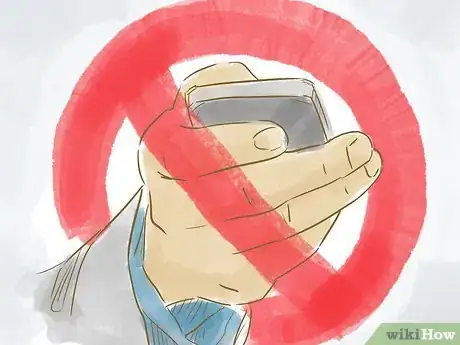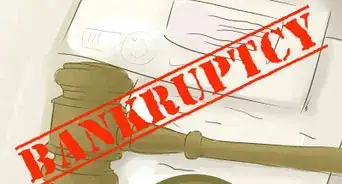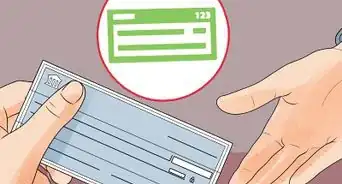X
wikiHow is a “wiki,” similar to Wikipedia, which means that many of our articles are co-written by multiple authors. To create this article, 12 people, some anonymous, worked to edit and improve it over time.
This article has been viewed 19,936 times.
Learn more...
Do you have collection agencies calling you night and day? Want to beat them at their own game legally? Now you can turn the tables on those nasty collection agencies.
Steps
Method 1
Method 1 of 1:
Make an offer they cannot refuse
-
1Know that you do not have to talk to them. Think of those nasty collection agencies as little barking dogs: noisy and nothing to be afraid of. The reason they are calling is to get money out of you the debtor because it is unsecured. That is there is no collateral behind the debt unlike a car loan or a mortgage. Remember that when a collection agency calls and gets 'tough' on you.
-
2If you do pick up the phone and talk to the collections agent, deny all knowledge of that debt. The Statute of Limitations is 2 years from the day the account is found to be uncollectable. If you admit to having the debt the clock is reset.Advertisement
-
3Change your phone number. This will buy you about 4 months of peace and quiet before they find the new number. On your voice message greeting make it very generic.
-
4Wait about 6 to 7 months before even thinking about negotiating with them. During this time period the collection agency has been calling and not received one red cent. This is good news for you the debtor because now it is costing them more time and resources to collect.
- Keep it going. After 6 or 7 months it is become clear to the collection agency that it is becoming increasingly difficult to collect. When you do negotiate at the 6 or 7 month period you can settle for a lot less than 100% of the debt. Sometimes settling for 30% or less.
-
5If the collection agency will not budge, then hang up and wait another 2 or 3 months. After about 9 or 10 months you can certainly negotiate a better price. The collection agency will threaten to take you to court, but they will not do it. It costs too much and they have no evidence other than a phone number and an amount outstanding.
-
6Use a simple method if you are planning to buy a car or house within the next 5 years. Your credit rating will take a hit but not as much as the Go Thermonuclear method. If you decide to take this method rest assured that this is better than giving in at the start. This method ensures that the collection agency will want to take your offer.
-
7Go Thermonuclear. If buying a car or house is not in the cards for the next 5 years then going Thermonuclear might have some appeal. As mentioned before the Statute of Limitations in Ontario Canada is 2 years, after that collection agencies have no legal recourse on you the debtor. All they can do is keep calling after that. Do not pay one red cent at all to the collection agency and they cannot come after you the debtor legally speaking.
Advertisement
Community Q&A
-
QuestionCan I refuse to pay a debt collector if they put a claim in for payment on a Chapter 13 bankruptcy?
 DonaganTop AnswererProbably nt. A debt collector is often a legitimate creditor and has the right to file a claim against your assets.
DonaganTop AnswererProbably nt. A debt collector is often a legitimate creditor and has the right to file a claim against your assets. -
QuestionThey say I have hospital bills, but they where paid. How could I prove that?
 DonaganTop AnswererPerhaps you have receipts. If not, check hospital account statements for indications of payment. If you can't find any of these, ask the hospital for fresh copies. Also, your credit card statements may show hospital payments.
DonaganTop AnswererPerhaps you have receipts. If not, check hospital account statements for indications of payment. If you can't find any of these, ask the hospital for fresh copies. Also, your credit card statements may show hospital payments.
Advertisement
Warnings
- If as a debtor you choose Go Thermonuclear option, your credit rating is toast for the next 5 or so years. Just weigh carefully the two methods. If Go Thermonuclear appeals to you rest assured that you do not have to pay back that debt. Unless it is student loan or tax debt.⧼thumbs_response⧽
Advertisement
References
- Source: Wolf at the door: What to do when collection agencies come calling by by Mark Anthony Silverthorn (Jan 26 2010)
- Source: http://www.e-laws.gov.on.ca/html/statutes/english/elaws_statutes_02l24_e.htm
About This Article
Advertisement


























































